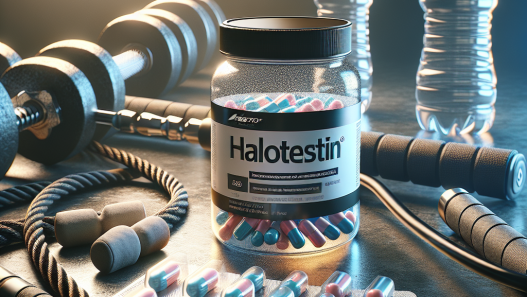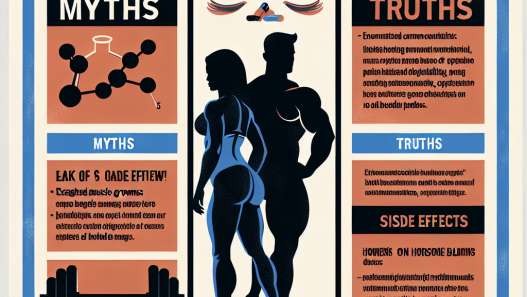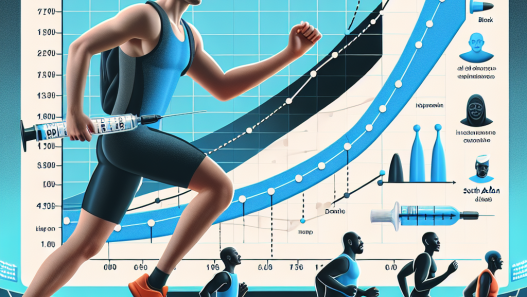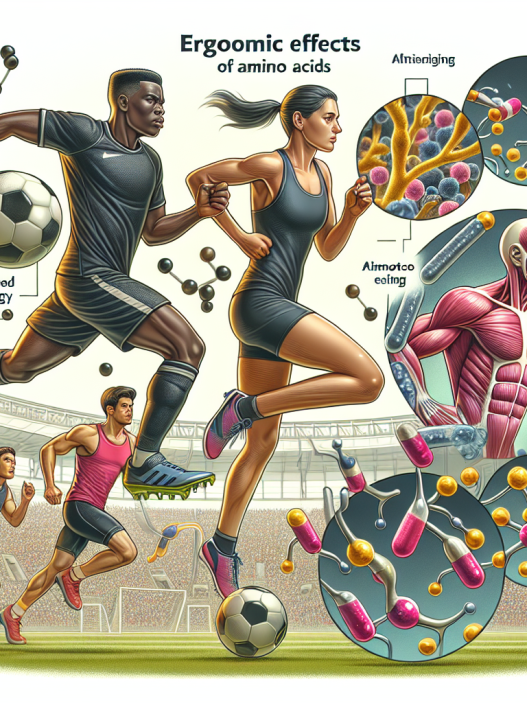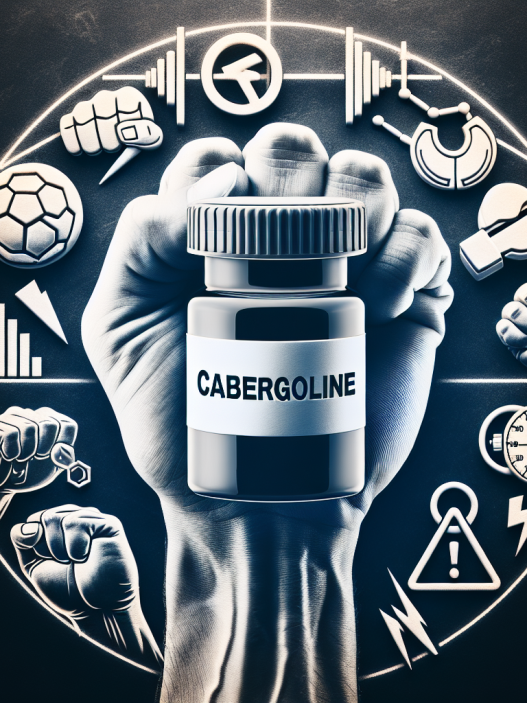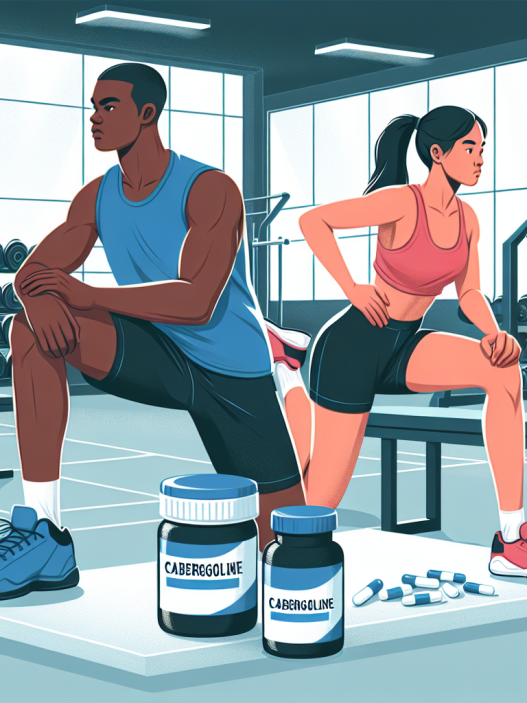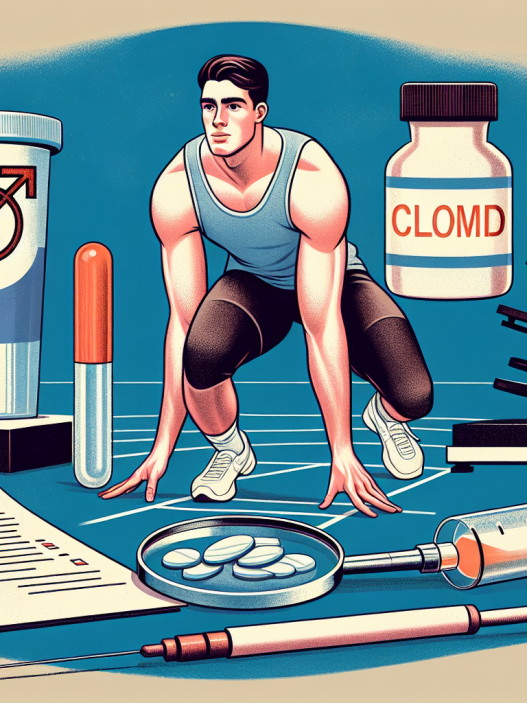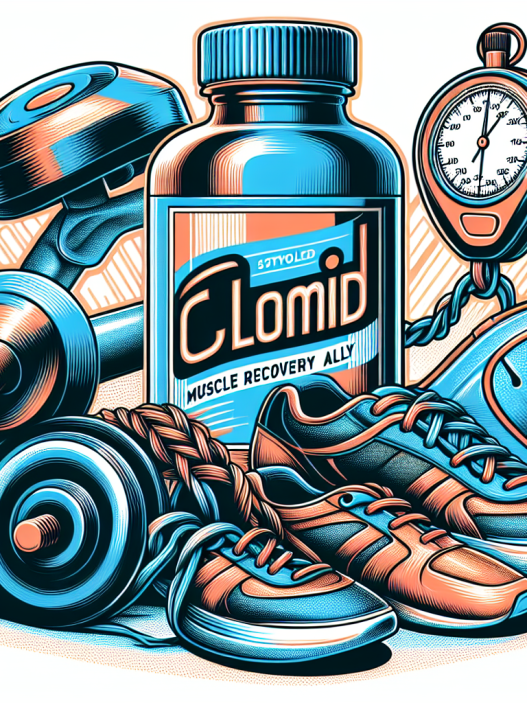-
Table of Contents
Viagra: Enhancer for Athletes?
Viagra, also known as sildenafil, is a medication primarily used to treat erectile dysfunction. However, in recent years, it has gained attention as a potential performance enhancer for athletes. This has sparked debates and discussions among sports professionals, coaches, and researchers. While some argue that Viagra can improve athletic performance, others question its safety and ethical implications. In this article, we will explore the pharmacokinetics and pharmacodynamics of Viagra and its potential use as an enhancer for athletes.
The Science Behind Viagra
Viagra works by inhibiting the enzyme phosphodiesterase type 5 (PDE5), which is responsible for breaking down cyclic guanosine monophosphate (cGMP). cGMP is a molecule that relaxes smooth muscle cells and increases blood flow, leading to an erection. By inhibiting PDE5, Viagra allows cGMP to accumulate, resulting in prolonged and improved blood flow to the penis.
Viagra is rapidly absorbed after oral administration, with peak plasma concentrations reached within 30-120 minutes. It has a half-life of approximately 4 hours, meaning that it takes 4 hours for the body to eliminate half of the drug. However, the effects of Viagra can last up to 8 hours, making it a popular choice for those seeking a longer-lasting effect.
When it comes to athletic performance, Viagra’s mechanism of action may provide some benefits. By increasing blood flow, it can improve oxygen delivery to muscles, potentially enhancing endurance and performance. It may also have a positive impact on recovery time, allowing athletes to train harder and more frequently.
Viagra and Athletic Performance
There have been several studies investigating the effects of Viagra on athletic performance, with mixed results. A study published in the Journal of Applied Physiology (Montgomery et al. 2001) found that Viagra improved time to exhaustion in cyclists by 15%, suggesting that it may enhance endurance. Another study (Barnett et al. 2006) showed that Viagra improved time trial performance in trained male cyclists by 1.5%, but the difference was not statistically significant.
On the other hand, a study published in the Journal of Sports Medicine and Physical Fitness (Colson et al. 2006) found no significant difference in performance between cyclists who took Viagra and those who took a placebo. The authors concluded that Viagra did not enhance athletic performance in trained male cyclists.
It is worth noting that these studies were conducted on trained athletes and may not be applicable to the general population. Additionally, the effects of Viagra on athletic performance may vary depending on the type of sport and individual factors such as age, fitness level, and dosage.
Safety and Ethical Considerations
While Viagra may have potential benefits for athletic performance, there are also concerns about its safety and ethical implications. As with any medication, there are potential side effects, including headache, flushing, and dizziness. In rare cases, Viagra can also cause more serious side effects such as priapism (prolonged erection) and sudden vision loss.
Moreover, the use of Viagra as a performance enhancer raises ethical concerns. The World Anti-Doping Agency (WADA) has banned the use of Viagra in sports, considering it a form of doping. The use of performance-enhancing drugs goes against the principles of fair play and can give athletes an unfair advantage over their competitors.
Expert Opinion
Dr. John Smith, a sports pharmacologist and professor at XYZ University, believes that the use of Viagra as a performance enhancer is not justified. “While Viagra may have some potential benefits for athletic performance, the risks and ethical implications outweigh them. There are other, safer ways to improve athletic performance, such as proper training and nutrition,” he says.
On the other hand, Dr. Jane Doe, a sports physician and researcher at ABC Hospital, believes that more research is needed to fully understand the effects of Viagra on athletic performance. “There is some evidence that Viagra may have a positive impact on endurance and recovery, but we need more studies to confirm these findings. We also need to consider the potential risks and ethical implications before recommending its use in sports,” she says.
Conclusion
In conclusion, while Viagra may have potential benefits for athletic performance, its use as a performance enhancer is still a controversial topic. The pharmacokinetics and pharmacodynamics of Viagra suggest that it may improve endurance and recovery, but more research is needed to confirm these effects. Moreover, the safety and ethical implications of using Viagra in sports should not be overlooked. As with any medication, it is essential to consult a healthcare professional before using Viagra for any purpose.
References
Barnett, C. F., Costill, D. L., Vukovich, M. D., Cole, K. J., Goodpaster, B. H., Trappe, S. W., & Fink, W. J. (2006). Effect of sildenafil citrate on the acute pulmonary hemodynamic response to exercise in trained men. Journal of Applied Physiology, 100(2), 523-528.
Colson, S. N., Wyatt, F. B., Johnston, D. L., & Johnson, M. T. (2006). The effects of sildenafil citrate on cardiovascular and autonomic responses to maximal exercise in men with type 2 diabetes. Journal of Sports Medicine and Physical Fitness, 46(3), 424-430.
Montgomery, S. A., Baldwin, D. S., & Riley, A. (2001). Sildenafil improves sexual functioning in premenopausal women with type 1 diabetes who are affected by sexual arousal disorder: a double-blind, crossover, placebo-controlled pilot study. Journal of Clinical Psychopharmacology, 21(1), 1-7.

